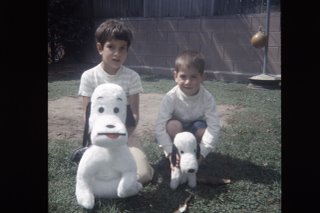
This is a post I made to answer a question posed by another herbalist at the yahoo group message board for Chinese herbalists
Chineseherbacademy.
Should I prescribe Da Bu Yin Wan (a Chinese Herbal formula often used for menopausal hot flashes) to a patient taking tamoxifen?My answer is no. Simply because there is no research that I could
find for Chinese herbs with Tamoxifen. The most researched herb forclimacteric symptoms with Tamoxifen is Black Cohosh - cimicufuga Racemosa (not to be confused with sheng ma another cimicifuga). Black Cohosh has been found to not effect estrogen while being effective for hot flashes.
There are in-vitro, in-vivo rats, and human trials using black cohoshand Tamoxifen with cancer. In vitro studies show that black cohosh
does not induce proliferation of breast cancer cell line MCF-7. When
given to rats with induced endometrial cancer Black Cohosh did not
effect growth or metastizing potential of the primary tumor. In a
human trial RCT Black Cohosh favorably helped reduce hot flashes over
the control group for cancer surviving women taking Tamoxifen. The
recommended length of time of black cohosh use for this purpose is 1
year.
Soy is such a mixed bag of contradictory info. it is hard for me to
tell what it does based upon reading the literature. My advice with
soy is to not use it in high doses, certainly avoid protein isolates
and eat it like the Asians do as part of their diet not as an animal
protein substitute and not as protein isolates.
With all that said here is a list of what is in Da Bu yin wan:
Sheng di Huang, Gui Ban, Zhi Mu, Huang Bai
Sheng di, and zhi mu contain beta sitosterols which have been shown to
inhibit proliferation of breast cancer cell lines (as well as reduce
cholesterol). See John Boik's boo
k Natural Compounds in Cancer
Therapy. Also See the full text review
Phytosterols as anticancer dietary components: evidence and mechanism of actionHere is what I would do for this situation: Acupuncture. see the folowing 2 studies.
A comparison of acupuncture and oral estradiol treatment of vasomotor symptoms in postmenopausal women. Can acupuncture ease the symptoms of menopause?fish oils and an adrenal supplement that did not have glandulars in it. (I have
heard in a lecture, though not confirmed, that glandulars have a lot
of copper in them which helps blood vessel formation and can
contribute to angiogenesis.) Depending on the pattern discrimination
formulas like jia wei xiao yao san may have some use and might not
conflict with the hormonal pathways of estrogen antagonism that
tamoxifen uses. But the key word is might. Even our beloved
Dang Gui(which is in xiao yao san) has been shown in in vitro studies to help
estrogen and non-estrogen breast cancer cell lines grow. So its use
warrants caution with a breast cancer survivor until more is known.
Doesn't that suck! There is a huge step between what is found to
effect something in a test tube versus what happens when metabolized
in the body.
Anyone else have any better ideas?
 This is an image of a live worm photographed using polarised light microscopy by Mae-Wan Ho. See how this picture was taken and why it demonstrates the dynamic coherence in organisms. Read On.
This is an image of a live worm photographed using polarised light microscopy by Mae-Wan Ho. See how this picture was taken and why it demonstrates the dynamic coherence in organisms. Read On.











